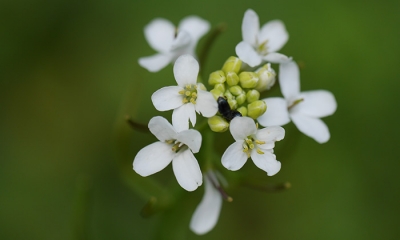Following is an except from an article that originally appeared on the website of the Texas Advanced Computing Center on January 28, 2015:
 Scientists using supercomputers have found genes sensitive to cold and drought in a plant help it survive climate change. These findings increase basic understanding of plant adaptation and can be applied to improve crops.
Scientists using supercomputers have found genes sensitive to cold and drought in a plant help it survive climate change. These findings increase basic understanding of plant adaptation and can be applied to improve crops.
The computational biology study on the flowering mustard weed Arabidopsis thaliana appeared in the journal Molecular Biology Evolution in September 2014. The iPlant Collaborative and the supercomputers Stampede, Lonestar and Ranger of the Texas Advanced Computing Center aided in the research.
"We found pretty good evidence, certainly the best evidence to date, that the evolution of gene expression is an important way that plant populations adapt to local environments," said study co-author Jesse Lasky, an Earth Institute fellow at Columbia University.
Thomas Juenger is another co-author and a faculty member in the Department of Integrative Biology of The University of Texas at Austin. The Juenger Lab has studied Arabidopsis thaliana for over a decade.
"It's one of the model plants that biologists study," Juenger said.
Arabidopsis has one of the smallest genomes of any plant, and in 2000 it was the first plant genome to be completely sequenced. Plant biologists consider Arabidopsis to be like the fruit fly of their genetic research. But instead of knocking out or ramping up genes with genetic engineering, Juenger studies natural variation in genes.
"We want to understand how they've evolved in response to the processes of natural selection and gene flow and mutation in the field," he said.


















Comments